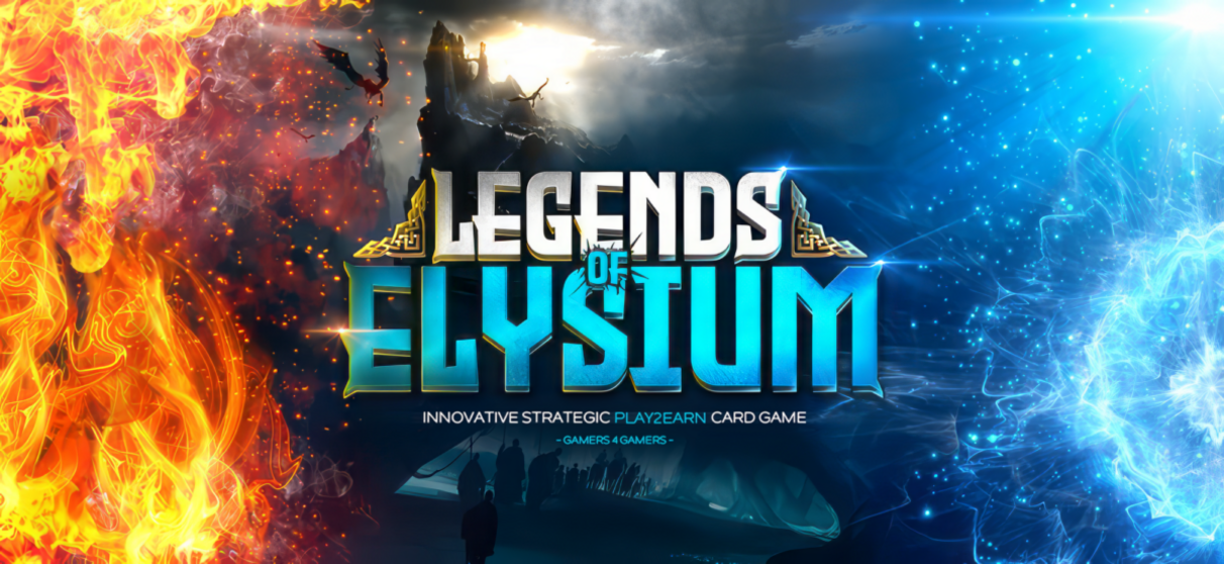GameFi’s Challenges and the Evolution Brought by Legends of Elysium
GameFi, or Gaming Finance, has burst onto the scene in the crypto market, creating a distinct segment that merges the exhilarating realm of gaming with the principles of decentralised finance. Still, titles such as Illuvium have laid bare the rough landscape of GameFi, beset with myriad challenges. The heart-stopping nosedive of Illuvium’s ILV token by an eye-watering 97% since its inception in 2021 starkly illustrates some of the broader issues plaguing the GameFi model. A critical problem is the disproportionate focus on financial gain, which can eclipse the core purpose of gaming – unadulterated joy and authentic entertainment. Take, for example, Illuvium’s strategy of gathering substantial funds through the sale of its ILV token and the auction of land-based non-fungible tokens (NFTs), all ahead of the game’s official release. This typifies a trend in GameFi – while investment streams in gloriously, an intense concentration on monetisation tactics like these can spell a decline in gameplay quality, eventually leading to disgruntled players and waning confidence in the sector.
In contrast, consider Pixelmon, a game inspired by big names like Minecraft, Fortnite, and Pokemon. Despite amassing about $70 million from NFT sales, the game’s debut was woefully inadequate against player expectations, underscoring how prioritising profit maximisation can undermine an absorbing gaming experience.
Nevertheless, there’s a glimmer of hope on the horizon. Among these obstacles, Legends of Elysium, or LoE, emerges as a transformative force in the GameFi world. Committed to delivering a game that’s both enjoyable to play and financially rewarding, LoE showcases innovative gameplay features such as a hexagonal board adorned with unique tiles and dynamic, engaging environments that make for an immersive gaming experience. Add to this Elytronite, an indispensable in-game resource for various activities, further layering the strategic depth. Complemented by blockchain technology, many of LoE’s in-game assets are NFTs, greatly enhancing the gaming experience by granting players genuine ownership of these assets.
LoE’s philosophy is much more than simply adding another offering to the GameFi universe; it’s akin to a revolution that alters the very underpinnings and delivers a comprehensive experience. It’s about meticulous game design, instilling value in the in-game currency, and transforming players into stakeholders who have a say in the game’s direction, can exchange assets, and earn from their gameplay.
LoE’s commitment to crafting a balanced ecosystem is epitomised by its approach to NFTs. These aren’t just tools for monetisation; they are woven into the fabric of gameplay and are pivotal to the game’s economy. The game resonates with strategy and action, enabling players of diverse skill sets to find their place in the LoE journey. This community-centric strategy assures that players have a say, contribute to the game’s evolution, and are acknowledged for their loyalty and expertise.
Enter, the paramount GameFi pioneer – Legends of Elysium. Challenges encountered by the likes of Illuvium underscore the imperative need for a measured strategy in GameFi. Earnings are important, but not to the detriment of the quality of gameplay. LoE shines as an exemplar, striking an optimal mix of engaging gameplay and financial success by integrating blockchain elements and furnishing a peerless gaming experience. This game stands as a benchmark for the GameFi sector, demonstrating that profitability and earnest entertainment can harmonise within the GameFi cosmos.
